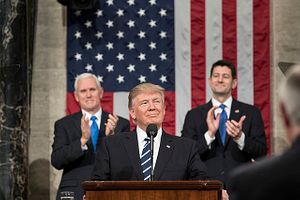Last week, the U.S. Special Envoy for North Korea Joseph Yun paid a visit to Myanmar as part of a broader trip to the region from July 11 to 18. His trip to the Southeast Asian state once again placed the issue of Myanmar-North Korea ties back in the spotlight.
North Korea’s links with Myanmar, and Southeast Asian states more broadly, are not new. As I have noted before in these pages, regional watchers have long known that members of the Association of Southeast Asian Nations (ASEAN) still maintain various forms of economic and people-to-people links with Myanmar, even though they only tend to make the headlines when crises periodically erupt (See: “The Myth of a Malaysia-North Korea Special Relationship”).
However, Myanmar’s ties with North Korea have received particular scrutiny in recent years. While the full extent of the Myanmar-North Korea relationship has not been publicly unveiled, reports have periodically surfaced on the extent of their defense ties, including North Korean arms exports to Myanmar’s military, which had ruled the country for decades, as well as other forms of technical assistance and exchanges in the 2000s and 2010s.
In recent years, the United States has been pressuring Myanmar to sever all of its remaining links with Pyongyang as it transitions away from military rule. Though the Obama administration did lift sanctions on Myanmar as part of a historic thawing in relations between the two sides, officials still continued to apply pressure on this point and have said privately and at times publicly that there were some military officials who had been maintaining interactions with Pyongyang. This includes individuals linked to Myanmar’s Directorate of Defense Industries (DDI), a massive state enterprise that the U.S. government had specifically said was involved in the illegal arms trade from Pyongyang to Naypyidaw.
With the North Korea issue moving up on the priority list for the United States under U.S. President Donald Trump, and more so now with the launch of an intercontinental ballistic missile (ICBM) earlier this month, there has been even more scrutiny on Myanmar as well as other Southeast Asian states to sever all ties with Pyongyang. To take just one example, though North Korea was far from the only issue discussed during the Special ASEAN-U.S. Foreign Ministers’ Meeting held in Washington, D.C. back in May, Southeast Asian representatives familiar with the deliberations were nonetheless surprised by how much it was a focus (See: “What was the First Special US-ASEAN Meeting Under Trump Really About?”).
Washington has also taken a series of steps with respect to Myanmar in particular. In March, DDI was sanctioned under the Iran, North Korea, and Syria Nonproliferation Act, a move that the Obama administration had taken too, indicating that previous concerns about its role still remained.
It was thus no surprise that Yun’s trip to the region last week saw the North Korea issue surface yet again. The media focus on the North Korea-Myanmar linkage was also expected given both Yun’s portfolio as well as the fact that Myanmar was the only regional stop apart from attending the Northeast Asia Cooperation Dialogue in Singapore.
Official statements issued from the Myanmar side following Yun’s meeting with officials, including de facto leader Aung San Suu Kyi and military chief Min Aung Hlaing, unsurprisingly did not reference the specifics of the North Korea-Myanmar links discussed. However, the military chief, who is no stranger to controversy, did issue a statement pointedly noting that Naypyidaw only had friends and no enemies, though it did also mention his desire to see a denuclearized Korean Peninsula.
But an anonymous senior State Department official reiterated to Reuters on Friday that the visit underlined continuing U.S. worries about North Korean links.
“It was an opportunity to message that any engagement with North Korea, particularly military engagement, is counterproductive to trying to end this threat that North Korea poses to the region and to the globe,” the official said, speaking on condition of anonymity.
Though the official said that Washington was now still relying mostly on diplomacy to express its concerns to Myanmar on these links, the official did not rule out the possibility of imposing further North Korea-related measures on Myanmar if needed.
“If a situation becomes so egregious and serious for our national security interests, there are a variety of tools, including sanctions,” the official reportedly said.
































